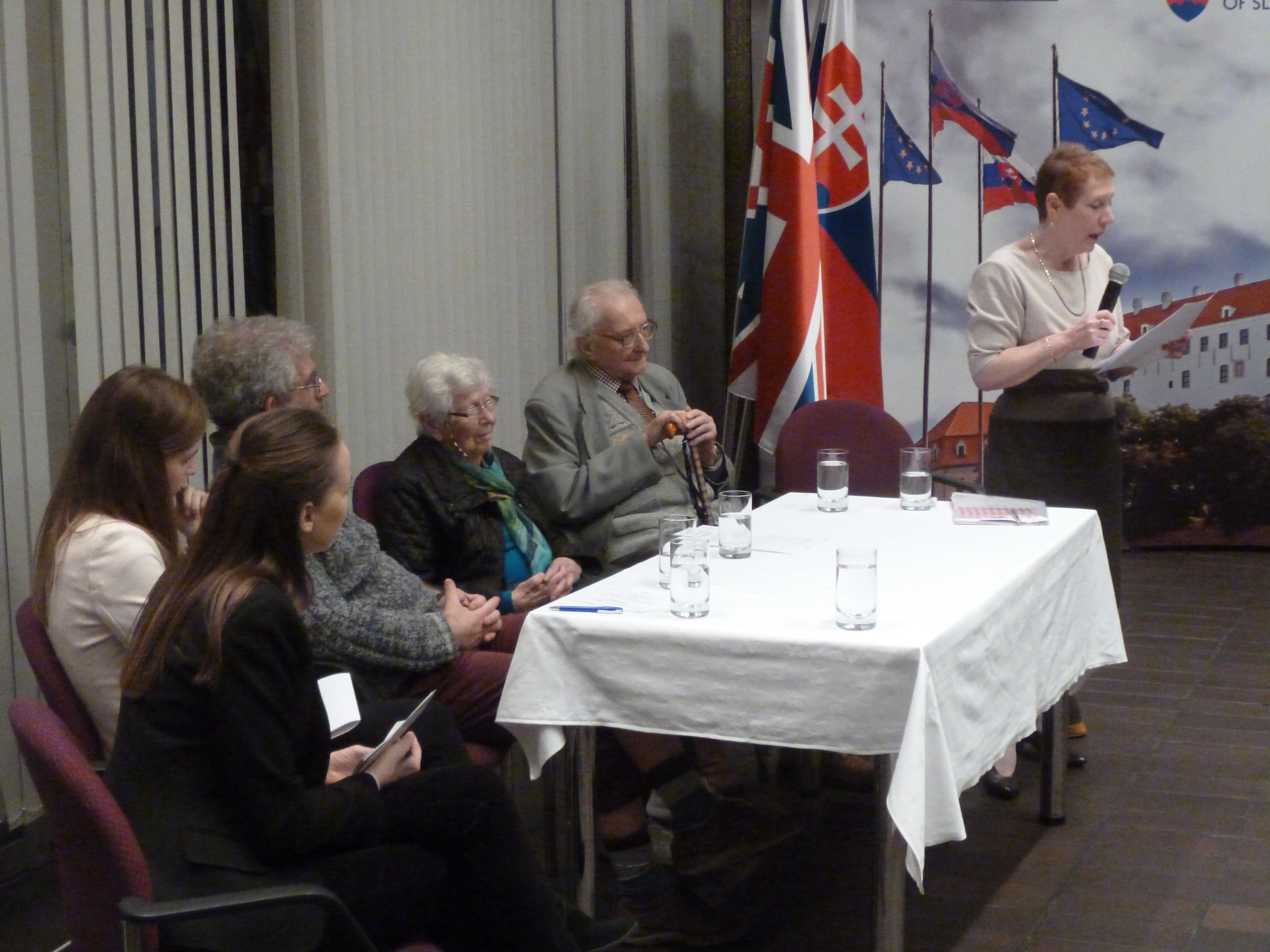See what’s coming up on on the BCSA’s Events Calendar.


Different generations, different experiences: the BCSA staged an intergenerational event on 30 October, in conjunction with the Czech and Slovak Society of the London School of Economics Student Union. A full house at the Slovak Embassy heard four speakers talk about their sometimes dangerous journeys from communist Czechoslovakia to Britain, and the kind of welcome they received when they got here. This compared with the experiences of the newer arrivals, who had largely come since the accession of the Czech and Slovak Republics to the EU in 2004.
The four speakers were:
Karel Sling, the son of Otto Sling, who was one of the accused in the Stalinist show trials of the early 1950s and was shot in 1952. Karel signed Charter 77, suffered for it and emigrated to Britain in the 1980s.
Professor Gerta Vrbova who spoke of her discovery when she came to Britain that there were different types of freedom: here she could travel where she liked, make friends with whom she liked, say what she liked, but also as a woman she felt much less free than she had been in Czechoslovakia, where women had many more opportunities. She praised the British for their tolerance, but not for the difficulty of finding childcare so she could work.
Eduard Strouhal escaped across the Austrian border in 1948, with the help of reusable forged ID to get past the Russians, and of Austrian police who (literally) looked the other way. As a refugee he had to take work allocated him by the Ministry of Labour, which included a stint clearing unexploded mines and ammunition from an Army training range on the North Yorkshire moors.
Dr Jana Buresova arrived in Britain in 1952 at the age of two, coming from a Displaced Persons camp in Germany, where her mother had been placed following the 1948 communist coup in her home country. As her mother expected repatriation, Jana’s early childhood was ‘very Czech’. She had always seen herself as Czech, though sometimes she felt that Czechs thought she was English (while the English thought she was Czech).
A common theme was that for many, or even most, of those who came to Britain to escape communist Czechoslovakia, their time here was intended to be temporary. They expected to return home once things changed for the better. But as the years wore on they realised that this was not to be. This found a kind of echo in the contributions from the younger members of the audience. They had come here as students, or for an international experience, or to earn money, and they expected to return home or at least to move on elsewhere before too long.
[Edward Peacock]
[photograph, speakers left to right – Karel Sling, Professor Gerta Vrbova, Eduard Strouhal, Dr Jana Buresova
BCSA makes an effort to ensure that information contained in these pages is accurate.
However, no liability is accepted arising from reliance upon the information contained in these pages or any other information accessed via this site.